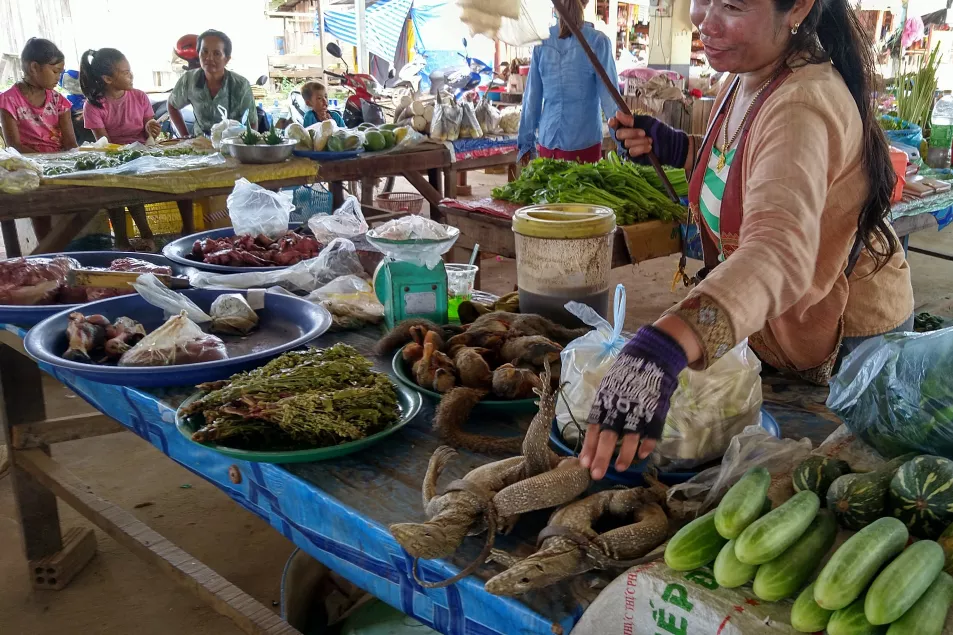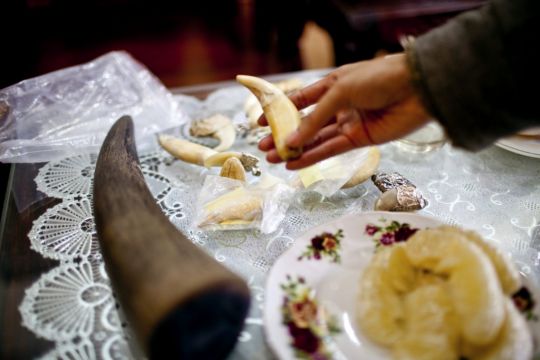Illegal purchases of wildlife online are growing in Myanmar, in a threat both to public health and to endangered species, a report by the World Wildlife Fund shows.
The report on Friday found that enforcement of bans on such transactions has weakened amid political turmoil following a 2021 military takeover.
The number of such dealings rose 74% over a year earlier to 11,046, nearly all of them involving sales of live animals.
Of the 173 species traded, 54 are threatened with global extinction, the report said.
Researchers identified 639 Facebook accounts belonging to wildlife traders. The largest online trading group had more than 19,000 members and dozens of posts per week, it said.

The animals and animal parts bought and sold involved elephants, bears and gibbons, Tibetan antelope, critically endangered pangolins and an Asian giant tortoise.
The most popular mammals were various species of langurs and monkeys, often bought as pets.
Most of the animals advertised for sale were taken from the wild. They also included civets, which along with pangolins have been identified as potential vectors in the spread of diseases such as Sars and Covid-19.
Shaun Martin, who heads the WWF’s Asia-Pacific regional cybercrime project, said monitoring of the online wildlife trade shows different species being kept close together, sometimes in the same cage.
“With Asia’s track record as a breeding ground for many recent zoonotic diseases, this sharp uptick in online trade of wildlife in Myanmar is extremely concerning,” he said.

The unregulated trade in wild species and resulting interactions between wild species and humans raise the risks of new and possibly vaccine-resistant mutations of illnesses such as Covid-19 that could evolve undetected in non-human hosts into more dangerous variants of disease, experts say.
Covid-19 is one of many diseases traced back to animals. The killing and sale of what is known as bushmeat in Africa was thought to be a source for Ebola. Bird flu likely came from chickens at a market in Hong Kong in 1997. Measles is believed to have evolved from a virus that infected cattle.
Social media and other online platforms have joined a worldwide effort to crack down on the thriving trade in birds, reptiles, mammals and animal parts.
In Myanmar, much of the trade in wildlife is through Facebook, which as a member of the Coalition to End Wildlife Trafficking online has taken action to block or remove accounts of people engaged in such transactions.
Highlighting the lack of enforcement, people in the illegal wildlife trade in Myanmar often use rudimentary methods of moving the animals and animal products around – with buses being the usual form of transport.
The study by WWF in Myanmar focused on trade online of animals and other creatures inside the country, though there were some imports from neighbouring Thailand, mainly of birds such as cockatoos and parrots and of crocodiles, to India.
Some deals might involve animals or parts being sent into China, it said.
The conservation group said it plans future studies to better understand Myanmar’s role in the global trade in endangered species.







